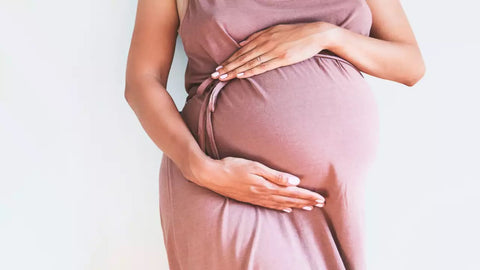Menopause, a natural stage in a woman's life, usually occurs between the ages of 45 and 55. It is characterized by the cessation of menstruation and the release of eggs. However, this process does not happen overnight, but begins with a previous phase called perimenopause , where menstrual cycles begin to be irregular and some symptoms may appear such as hot flashes, mood swings and vaginal dryness.
Pregnancy during menopause?
Although menopause marks the end of a woman's fertile capacity, it is important to remember that it does not occur abruptly . During perimenopause , menstrual cycles may be irregular, meaning that you continue to ovulate and that, although the probability of pregnancy is low, it does exist. That is why it is important that you continue to use contraceptives until menopause is confirmed and that you go to your trusted gynecologist for a detailed assessment, both of your menstrual stage and of the contraceptive method that is appropriate for you.
When to stop using contraceptives?
Although the likelihood of pregnancy decreases considerably after age 45, it is crucial to continue using contraception until menopause is confirmed . This is because, although menstrual cycles are less frequent, there is still the possibility of ovulation. The Spanish Society of Gynecology and Obstetrics (SEGO) recommends continuing with contraception until a woman has gone one year without having a menstrual period.
Contraceptive options for menopause:
Choosing a contraceptive method during menopause should be done in conjunction with your doctor, who will consider your medical history, lifestyle, and personal preferences. Some available options include:
- Condom: The safest and most recommended method for all women, regardless of their age or menstrual stage.
- IUDs: Intrauterine devices (IUDs) can be an effective long-term option, especially if you want to avoid taking medications. You may need to have them removed after their effective time (after 5-8 years) due to your lower fertility rate. Talk to your doctor about the options available and how long they last.
- Hormonal contraceptives: If you have no medical contraindications, combined hormonal contraceptives (estrogen and progestogen) may offer additional benefits such as regulating the menstrual cycle, reducing vasomotor symptoms, preventing bone loss, and protecting against certain types of malignant ovarian and endometrial tumors. There is even evidence that they help protect against arthritis and colorectal cancer. However, it is important to consult with your doctor to assess whether they are suitable for you.
Women over 40 years of age who smoke or have other risk factors for cardiovascular disease, such as high blood pressure and/or obesity, should also avoid combined hormonal contraceptives. They should also avoid those with a history of myocardial infarction, thromboembolism, stroke, breast cancer or severe liver disease.
An opportunity to take care of your health
Beyond contraception, menopause represents an opportunity to prioritize your health and well-being . It is important to maintain a healthy diet, engage in regular physical activity, and have regular medical checkups to detect and prevent potential health risks.
Recommendations
- Watch your diet and physical activity: Weight gain during menopause can increase the risk of developing chronic diseases such as type 2 diabetes and heart disease.
- Quit smoking: Smoking increases your risk of osteoporosis, heart disease, and other health problems.
- Limit alcohol consumption: Excessive alcohol consumption can worsen menopausal symptoms, such as hot flashes and difficulty sleeping.
- Take care of your mental health: Menopause can cause mood swings and increase the risk of depression. If you experience these symptoms, seek professional help.
Remember:
- Menopause is a natural process and should not be a cause for concern.
- Consult your doctor for personalized information about contraception and health care during menopause.
- Don't hesitate to talk to other women who are going through the same stage to share experiences and support.
Menopause does not mark the end of a stage, but the beginning of a new one. With information, care and support, you can enjoy a full and healthy life in this new phase.
References:
- Spanish Association for the Study of Menopause (AEEM)
- Bonet, R., & Garrote, A. (2017). Menopause. Professional Pharmacy (Internet) , 31 (6), 15–17.
- (S/f). Pfizer.es. Retrieved April 29, 2024, from
- Benefits of the Intrauterine Device (IUD) . (n.d.). Plannedparenthood.org. Retrieved April 29, 2024, from
- Perimenopause . (2023, August 2). Mayoclinic.org.
- Voedisch, A.J., & Ariel, D. (2020). Perimenopausal contraception. Current opinion in obstetrics and gynecology , 32 (6), 399-407.
- Baldwin, MK, & Jensen, JT (2013). Contraception during perimenopause. Maturitas , 76 (3), 235–242.
- Kailas, N.A., Sifakis, S., & Koumantakis, E. (2005). Contraception during perimenopause. The European Journal of Contraception and Reproductive Health Care: the official journal of the European Society of Contraception , 10 (1), 19-25.




Comments (0)
There are no comments for this article. Be the first one to leave a message!